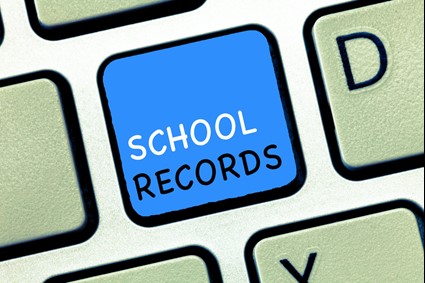As a teacher myself, there are a number of issues and concerns that, I am sure, we all face. Four, in particular, learning progression, tracking student data, differentiating the curriculum, and personalised learning, all have a tremendous impact on your ability to make informed instructional decisions as a teacher.
Record keeping for teachers is about ensuring that you have accurate data to make an impact on student learning.
Why is record keeping important in schools? It is because learning progression will only occur when you have accurately applied formative assessment strategies to establish a student’s skills, knowledge, and capabilities. Additionally, a student progress record is determined by how capable you are tracking student data.
Both differentiation and personalised learning are strongly influenced by the student data that your record and this, in turn, emphasises the need for effective record keeping in primary schools that is supported by formative assessment as it can be a great way to help you keep track of student progress.

There are many different types of record keeping for teachers that will enable you to make informed instructional decisions. Each fall into three main categories:
- Summative instructional data;
- Formative instructional data and;
- Attendance.
Examples of record keeping in teaching include:
- Tests;
- Project based learning;
- Class checking points;
- Exit cards;
- Rubrics;
- Pre-assessments;
- Whole class snapshots and;
- Individual profile sheets.
For effective record keeping in primary schools to occur, however, teachers themselves need answers to questions such as ‘What is record keeping in schools?’, ‘Why is record keeping important in schools?’, ‘How to keep track and record student progress?’, ‘Types of recording keeping schools?’, and what they have to do in relation to maintaining accurate records in the classroom?
As sound record keeping for teachers also has an impact on your ability to communicate well with parents, colleagues, and students, these questions raise significant factors pertaining to student attainment levels in schools.
If you are seeking the answers to these questions in relation to record keeping in primary schools you don’t have to search the web any further.
Imagine having the answers you need all in one place. No longer trolling the Internet and spending countless hours.
40 Plus Online PD courses for teachers
ICT in Education Teacher Academy


Keep track of student Progress with Effective Records
In this online workshop for teachers in primary education, you will be supported with foundational knowledge and expertise in order for you to make informed choices in your instructional teaching.
Research has indicated that the best way that online students learn is by applying the theories that they have learned and through the examples given to them and this online workshop is loaded with examples of record keeping in teaching. They are a prime example of how to record student progress.
You will find all the answers to these questions on record keeping in primary schools and more in this low-cost online workshop today.
So sign up today and walk away with an armful of teaching resources and examples in methods of record keeping in schools now.
Membership cost: $41 AUD per month (Cancel anytime)